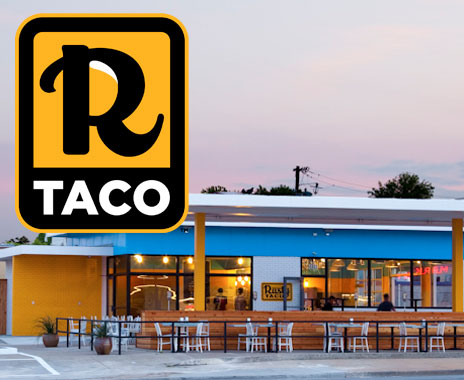Nothing was wrong with the name Qdoba Mexican Grill. But something wasn’t right with it. It just wasn’t, well, special.
“Mexican Grill has become a moniker many brands are using, but it doesn’t have much meaning with consumers,” says David Craven, vice president of brand marketing at Qdoba.
The folks at Qdoba did some digging, and they came up with a new name: Qdoba Mexican Eats. The company recently began the painstaking process of slowly changing to that name at all 650 of its U.S. units.
“It’s a bit more conversational and relatable to our core consumer—and it doesn’t position the brand as being highfalutin,” Craven says.
Changing—or even tweaking—a restaurant’s name may seem relatively simple, but it’s not. It’s complex. It’s often costly. And if not done for the right reasons and marketed properly, it can be extremely confusing to customers.
Over the years, lots of major restaurant chains have changed their names for a smorgasbord of reasons. Boston Chicken changed to Boston Market so it could offer a wider menu spectrum. Kentucky Fried Chicken shortened to KFC because health-conscious consumers began turning their backs on all things fried. And Popeyes Chicken & Biscuits changed to Popeyes Louisiana Kitchen to better reflect its Southern roots.
But be careful before messing with your moniker. “A restaurant needs to look in the mirror and determine if it’s the brand dragging their business down or something else,” says Peter Madden, CEO of the brand consultancy AgileCat, adding that it could also be inconsistent food quality, poor service, or failed attempts at customer engagement.
“A restaurant should change its name when it’s determined that the overall brand isn’t resonating with the target customer,” he says.
That wasn’t exactly the case with Qdoba. There, Craven says, the team “simply felt we had the opportunity to do something different” to stand out in a sea of name-sameness. Qdoba worked with a brand consultancy and gravitated to the moniker Qdoba Mexican Eats, he says, “because it speaks to the breadth and variety that the brand offers.”
The changes are slowly rolling in. New stores are opening under the new name, but it could be a long time before all stores are rebranded, Craven says. “Your name affects every aspect and touchpoint of the business,” he says. Changing a company name, he adds, “is as close to introducing a new brand or new company as you can get.”
Sometimes the name change can seem quite minor. Roti Mediterranean Grill is in the process of changing its name to Roti Modern Mediterranean.
The 21-store chain, with locations in Chicago, Washington, D.C., and New York City, simply wanted to stand out from the competition. “There are a lot of other Mediterranean Grills out there,” says Carl Segal, CEO of the chain. “We wanted a name that reflects a more modern experience that speaks to a more modern lifestyle.”
Here, too, the name change will take place in stages. The key is to do it cost-effectively. The chain is slowly using up all of its printed menus, bags, and cups and will reprint them with the new name only after the old ones are gone, Segal says.
Along with the name change, he says, there also are new design and branding elements to make the chain more contemporary.
The toughest part of changing a name? “Having the confidence to pull the trigger,” Segal says. “You can sit around and second guess, but if you’ve done your homework and have a great reason to change the name, you can do it with confidence.”
Sometimes a restaurant name change involves very personal complexities. Rusty Taco, a fast-casual chain with nine locations in Dallas, Denver, and Minneapolis, recently had the much larger Buffalo Wild Wings chain become a majority owner. Executives at Buffalo Wild Wings wanted to change the name before expanding the chain because the word Rusty seemed to have no logical relationship to the word Taco.
“Even before we changed the name, people did not necessarily think that the name Rusty sounded very appetizing,” says Steve Dunn, cofounder and CEO.
But in this case, Rusty had a very personal meaning: It’s the first name of the chain’s creator and other cofounder, Rusty Fenton, who died from cancer in 2013. Fenton always dreamed of the chain some day expanding nationally, Dunn says.
Executives from Buffalo Wild Wings worked closely with Rusty Taco executives, including Denise Fenton, Rusty’s wife, who remains a brand manager for the chain. They settled on the name R Taco.
“That ‘R’ stands for Rusty, and it will always stand for Rusty,” Dunn says. “We’ll bring his legacy along with us.”




